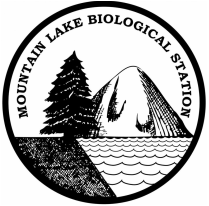A brief teaching statement
As a teacher and a mentor, I strive to foster curiosity, scientific literacy, and critical thinking. I emphasize the biological and mathematical foundations of ecological and evolutionary theory through hands-on, inquiry-based activities in the classroom, lab and field. My lectures, activities, and assignments focus on developing scientific thinking and writing and on connecting evolutionary ecology to global challenges. My classroom revolves around the use of simple, hands-on activities to directly engage students in complex concepts. For an example, learn more about the Red Queen Game here.
(active learning approaches are linked to improved performance in STEM classes, particularly for students from underrepresented populations – Haak et al. 2011 Science, Freeman et al. 2014 PNAS, Eddy and Hogan 2014 CBE – Life Sciences Education, DesLauriers et al. 2019 PNAS, Theobald et al. 2020 PNAS)
Courses
UVA BIOL 4012 Evolution and Ecology of Infectious Disease. Taught in spring semester. Pre-requisite: BIOL 3020. In this course, we dive into our current understanding of the evolution and ecology of parasitic interactions through primary literature, modeling, and experimental design. We cover the fundamentals of disease dynamics and the (co)evolution of host resistance and parasite virulence. We apply these ideas to modern problems to make sense of how human interventions, like drugs, vaccinations, and habitat destruction, might change the spread and evolution of parasites. The topics we discuss have broad implications for public health, the sustainability of agricultural practices, and the conservation of biodiversity. Throughout, we will focus on generating and testing hypotheses, evaluating theoretical models with evidence, drawing parallels between diverse domains of life, and connecting evolutionary and ecological ideas to today’s past, present, and future epidemics. You can find a recent syllabus here.
This course was taught virtually in fall 2020. I developed Zoomnosis, a rudimentary Zoom activity for introducing the idea of density-dependent vs. frequency-dependent parasite transmission using breakout rooms. Outlined here.
UVA BIOL 3460 Transferring to UVA Biology: Foundations for Success. Formerly BIOL 3559. Taught in the fall for incoming transfer students majoring in Biology. This seminar-style course is designed for new community college transfer students to get to know UVA Biology’s faculty, research, and resources. During this course, students become integrated into the department by engaging with the exceptional breadth of original research across the department. Each week, we read and collaboratively analyze a recent publication related to research at UVA Biology. We also attend weekly departmental seminar where faculty from UVA and other institutions share their latest scientific findings. Some weeks, students visit researchers’ labs to see the work in action. Through these activities, students improve their research skills by practicing reading literature, interpreting data and critiquing evidence. Students achieve success in the Biology major by orienting themselves to existing resources across Grounds and making connections with peers. During class time, we network with advising deans, mentors, pre-health advisors, and the Career Center to gain insights on navigating the Biology major and pursuing a career in the life sciences.
Evolutionary Biology Graduate Student Workshop at Mountain Lake Biological Station. A week-long course held at UVA’s Mountain Lake Biological Station during the summer. Students from all over are welcome. We think it’s most helpful for students who are in the summer after the first year of their PhD and gearing up to write their dissertation proposal. During this week, you’ll identify important questions in evolutionary biology, talk science with your peers, and learn to communicate your ideas in writing. This workshop is modeled off a course established in 1988 by Stephen Stearns and hosted by the University of Basel every year since in Guarda, Switzerland. We’ve developed our workshop to allow more North American graduate students to take advantage of this historic model for evolution education. You can find more details here and an overview of our inaugural course on the front page of MLBS’s annual newsletter.

UVA BIOL 20Su Spillover. Taught in June 2020 as a daily virtual seminar for incoming freshman during the Covid-19 pandemic. Where, when and why do pathogens jump to new hosts? And what happens next? In this course, we seek answers to these questions in scientific articles, popular science writing, and discussion. Along the way, you’ll learn some of the basic principles and approaches of disease biology and build a foundation with which to understand past, present and future pandemics. During these four weeks, you will also practice skills that will help you in your college-level science classes, like written and oral communication, interpreting graphs, and formulating hypotheses. The small learning community provides a safe, structured environment in which to practice and grow – the connections you form here will facilitate the transition to working, learning
and communicating with peers and faculty at college. You can find the syllabus here.
















